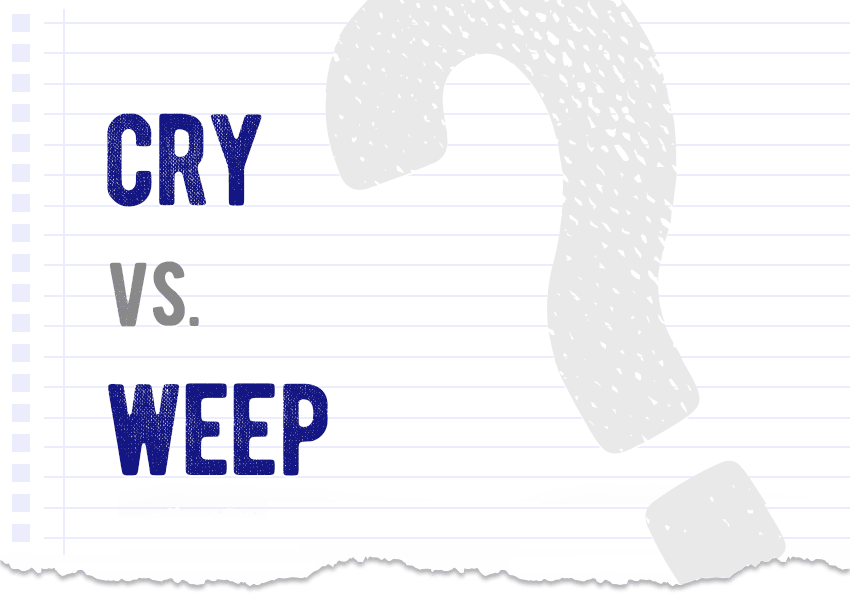Cry and weep — what’s the difference?
When tears brim in someone’s eyes and roll down their cheek… What does the person actually do? Do they cry or weep? Is there actually any difference between the two words? Dry your eyes, all your questions find their answers right here.

Cry and weep — difference and meaning
The slightly old-fashioned word weep has irregular past tense and past participle form: wept. Weeping means to shed tears, but the action is silent and restricted solely to grief, mourning and sadness.
Cry can function either as a noun or as a verb. When you cry, you also produce tears, but in contrast to weeping, you usually do it quite noisily, because of some strong emotions: sadness, anger or pain, sometimes joy. Cry can also carry other meanings, such as shout, or more archaically, beg or beseech someone.
We can then safely say that babies are crying, but they are definitely not weeping!
Let’s cry for some examples!
Both cry and weep appear in various useful phrases and idioms, just to name a few, in a handy table:
| CRY | WEEP |
|---|---|
|
|
Obviously, you can easily find many examples of crying and weeping in a number of writings:
‘Sometimes we love with nothing more than hope. Sometimes we cry with everything except tears.’
Gregory David Roberts, Shantaram, 2003
‘The tears of the world are a constant quantity. For each one who begins to weep somewhere else another stops. The same is true of the laugh.’
Samuel Beckett, Waiting for Godot, 1953
No more crying
Crying or weeping can be replaced by diverse synonyms, many of them tear-related. Tears can stream down your face, fill your eyes, or overflow, etc., or you can express your emotion by sobbing, bawling, blubbing, and even by wailing.


